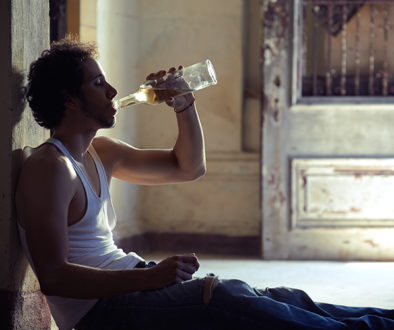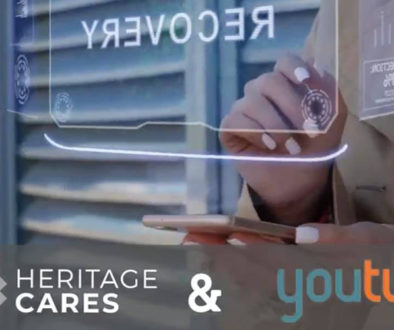AN ALTERNATIVE VIEW ON THE RECOVERY MOVEMENT
The Recovery Movement
At the risk of being labeled a full blown heretic, I’d like to offer an alternative view on peer support / recovery coaching and “the recovery movement”.
– Side Note: Can we agree that arguing by example is not the best way to approach a healthcare crisis.
An argument by example (also known as argument from example) is an argument in which a claim is supported by providing examples. “This the best way to recover: here are some examples “from my experience”.
A logical argument (or just argument) is a process of creating a new statement from one or more existing statements. An argument proceeds from a set of premises to a conclusion, by means of logical implication, via a procedure called logical inference.
In order to solve “problems” we must first identify the problem that needs solved.
If we identify the wrong problem (or we make up the problem) we can never solve the actual problem. You can put more gas in the car but if the ignition is faulty you will never be able to drive it…not matter how much gas you put in the tank.
WELL THEN…here we go:
The Narrative
There is a narrative in the “recovery movement” that fundamentally goes like this:
- Recovering people were working in the field.
- Things were going relatively well, overall.
- Then Insurance Companies started to play games.
- Managed Care Organizations and licensing bodies and evil regulators got involved.
- The field became “over-professionalized”.
- Recovering people were pulled out of the process.
- So we need to bring “peer recovery” back.
- Nothing about us without us. The problem is we have been left out.
- We need to advocate for peer recovery and inclusion in the process.
- Once we re-engage recovering people everything will get better.
- Recovering people will introduce better policy and better practice.
- People will rush into recovery and everything will improve.
(FOR THE RECORD: I AGREE. WE NEED INCLUDED IN THE PROCESS.)
The Problem
The problem is… that explanation is largely mythical.
- PRIOR TO “PROFESSIONALIZATION”:
The presence of “more recovering people” in the industry did not make things better. Things were not going well.
There was a punishing aspect to care. It was one size fits all.
The echo chamber was established and the lines between home group and therapy group were blurred (this persists today-unfortunately).
– For more information on pre-professionalization: consider the Minnesota Model and Synanon. The overwhelming majority of programs followed (and still follow) these principles (one way to recover, “confrontation” equals effective treatment etc…). - WITH “PROFESSIONALIZATION”
Even with professionalization, a fair percentage of people working in the field were in recovery themselves.
They became “certified addiction counselors” and/or professional therapists.
Also they worked in administration. They worked in “business development”.
They still work in business development…(and if you look around on FACEBOOK you will see exactly how little progress has been made in professionalizing addiction treatment marketing)….
The problem wasn’t over-professionalization.
The problem was confrontational, one size fits all treatment and no separation between personal recovery and professional treatment. - THE RECOVERY COACH
“Mobilizing and training” recovery coaches for the sake of creating an army of recovery coaches (in and of itself) is not smart.
Demanding more recovering people at the table is important; but only if they are professional in their approach and multiple pathway in their beliefs.
Massive damage is done when a “certified recovery specialist” (or whatever they are called in your respective state) is simply a sponsor with a credential.
There is a great deal of denial within the peer recovery support workforce. Many people who attend a training and claim to believe in multiple pathways quickly revert to their “recovery of choice” upon completion of the training. That sets the process back 50 years. - THE NEGLECT OF 90%
Recovering people don’t automatically offer new ideas and/or push new models.
Every “plan” is essentially some version of “more access to treatment (including M.A.T.)” ; a call for parity; a call for stigma reduction etc…
For the record (again), there has been an absolute neglect of 90% of people in need. People think that the 90% “treatment gap” is due to lack of access.
Conclusion:
There is zero validity to this perspective. The gap is due to mismanagement and disregard for the most basic elements of SUD.
Including, people DO NOT seek help—the disorder produces irrational behavior and impaired judgement.
Until we solve for that reality…we make only incremental progress.
The paradigm must change from “hit bottom and want it/relapse equals patient failure” to “the professional provider bears responsibility for connection, retention and service effectiveness”.
Until that happens nothing will change…ever. No matter how much gas money you have.
The issue is not over-professionalization.
The mentality that “only a recovering person can help someone with SUD” is problematic.
If this is a healthcare issue we need to act like it is a healthcare issue. This means many people with varied backgrounds will be involved in the solution.
And there will be a need for professionalization of the peer recovery credential.
This is where things breakdown in my mind. I won’t defer to arbitrary authority. It’s basically: appointed authority versus legitimate authority.
How do we reconcile the need for professionalization with the uncomfortable reality of centralized bureaucracy overlooking said professionalization?




